Tag: Dementia Care
Articles dealing with caregiver tips for patients with various types of dementia.
Articles dealing with caregiver tips for patients with various types of dementia.

Pharmaceutical advertisements often highlight the benefits of a particular drug, including its ability to reduce the risk of various health conditions. However, the actual risk reduction these drugs provide may differ from what is portrayed in the advertisements. It is the opinion of the author that if cardiologists and other providers told their patients the absolute risk reduction of statins is 0.8% for all-cause mortality, 1.3% for myocardial infarction and 0.4% for stroke and the side effects of going on a statin include dementia, worsening dementia, confusion, muscle problems, such as aches, pains, weakness, muscle breakdown, falls, nausea, constipation, diarrhea, and increase the risk of type 2 diabetes, would you or anyone else ever agree to take a statin?
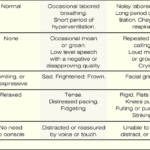
If you have a loved one with dementia, it can be difficult to know if they are in pain or discomfort. The Pain Assessment in Advanced Dementia Scale (PAINAD) is a tool that can help you determine if your loved one is uncomfortable. The Pain Assessment in Advanced Dementia Scale (PAINAD) is different from other pain assessment tools for people with dementia in several ways:

As an experienced hospice registered nurse case manager specializing in compassionate end-of-life care, I've had the privilege of working closely with terminally ill patients, including those battling dementia. Through years of dedicated service, I've observed a significant difference in the well-being and quality of life of dementia patients in family home settings versus facility-based care. In this article, we'll explore why patients with dementia often experience better outcomes in the comfort of a family home.
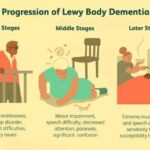
Lewy Body Dementia (LBD) is a complex and challenging condition that affects millions of individuals worldwide. As a hospice nurse with years of experience, I understand the importance of providing families with clear and compassionate information about what to expect when a loved one is diagnosed with LBD. This article will discuss what LBD is, its common symptoms and progression, and practical tips for providing care and support throughout the journey, from onset until the end of life.
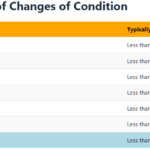
Explore the journey of functional decline in the natural dying process. This article provides insight for caregivers and families, emphasizing the importance of documenting changes to enhance care and decision-making in life’s final chapter.
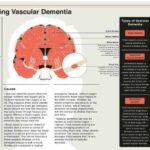
If your loved one has been diagnosed with Vascular Dementia, it is natural to have questions and concerns about what lies ahead. This educational article aims to provide you with an overview of what to expect over the course of the disease, the changes you might see in your loved one, and how to best care for them from onset until the end of life.

Dementia is a condition that affects millions of people worldwide, and it can cause a range of symptoms, including pain and discomfort. Unfortunately, pain is often under-detected and undertreated in people with dementia, leading to significant suffering and a reduced quality of life. In this article, we will explore the prevalence of pain among dementia patients, the impact of unmanaged pain on their quality of life, behavioral changes that may indicate pain, and the use of the PAINAD pain scale as a tool for assessing and managing pain in dementia patients.
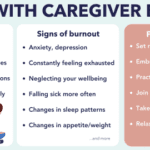
Caring for a loved one with dementia can be a rewarding experience, but it can also be physically, emotionally, and mentally exhausting. Family caregivers often neglect their own well-being while focusing on the needs of their loved ones, leading to burnout. Caregiver burnout is a state of physical, emotional, and mental exhaustion that can happen when caregivers don't get the help they need or try to do more than they are able to do. In this article, we will discuss how family caregivers of a loved one with dementia can avoid burnout and recover if they are already experiencing burnout.

In the realm of hospice care, where empathy and compassion are paramount, a remarkable approach called Validation Therapy has emerged as a beacon of hope and comfort for individuals facing dementia and cognitive disorders in their final journey. As an experienced hospice registered nurse case manager, I've witnessed the transformative impact of Validation Therapy on patients, allowing them to find solace, regain their self-worth, and experience a sense of dignity during their end-of-life phase.

Caring for individuals with dementia can be both challenging and rewarding. One approach that has gained recognition for promoting meaningful relationships with dementia patients is Validation Therapy, developed by Naomi Feil. This article will explore how Validation Therapy works, why it does not involve telling a single lie, and why honesty is crucial when dealing with dementia patients.
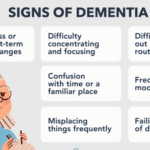
Dementia is a condition that affects cognitive abilities such as thinking, remembering, and reasoning. It is crucial to recognize the signs and symptoms of dementia early to provide proper support. This article will help you understand the common signs and symptoms of dementia and steps you can take to address them.
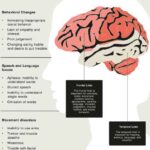
Facing a loved one's diagnosis of frontal lobe dementia can be overwhelming and challenging. This article aims to provide families with essential information about frontal lobe dementia, its progression, changes they might observe in their loved one, and best practices for caregiving from onset until the end of life.

As an experienced hospice visiting registered nurse, today offered me profound insights from two interconnected perspectives. The first highlights the blind trust we often place in facility nurses and doctors when caring for our loved ones. The second involves the challenges I encountered while advocating for proper end-of-life care for a patient with Alzheimer's.

As a hospice registered nurse, I have encountered numerous heartwarming and challenging experiences throughout my career. One of the most memorable encounters was with a dementia patient, Miss Norma Jean Smith, who affectionately called me "Jack." This endearing nickname, born out of her unique perception, became a symbol of the special bond we shared. In the following account, I will share the poignant journey of building trust, providing compassionate care, and embracing the unexpected moments of joy and sorrow in the life of Miss Norma. This story is a testament to the profound impact of person-centered care and the invaluable lessons learned from the patients we are privileged to serve.
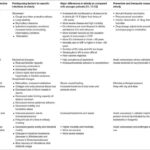
One of the most important roles is detecting and managing infections in terminally ill geriatric patients with dementia. These patients are often at higher risk for infections due to their weakened immune systems, underlying health conditions, and limited mobility. Detecting infections in these patients can be challenging due to their limited communication abilities and other cognitive and physical impairments. However, early detection and management of infections can significantly improve the patient’s quality of life and potentially prolong their life.

Dementia is a progressive brain disorder that affects a person’s cognitive abilities, memory, and behavior. In the later stages of the disease, some patients can become combative and aggressive, making it difficult for caregivers to provide the necessary care. As a hospice nurse, it’s important to know how to approach and manage combative dementia patients to ensure their comfort and safety. Here are some best practices to consider:
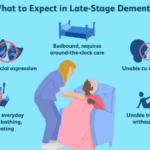
Explore the ethical dilemma of physical therapy for terminally ill dementia patients. This article examines the potential harm of aggressive interventions, highlighting the importance of comfort-focused care. Learn why hospice professionals often advocate for gentler approaches in end-of-life dementia care.

Naomi Feil is an expert in gerontology and the creator of validation therapy, which is a means of communicating and acknowledging the internal reality of patients with dementia. When properly utilized, validation therapy can enhance the quality of life of patients with dementia as well as reduce stress on the family and caregivers.
While Naomi Feil and her followers (of which the writer of this article may be considered one, at least in form) focus on using this method of communication to maintain health with the potential for a level of restorative health, I want to share how the concepts of this method can be used during times of crisis.

Caring for a loved one with dementia can be challenging. This article provides insights into understanding dementia, its stages, and practical tips for caregivers. Learn about the FAST Scale, validation therapy, and when hospice care might be appropriate to ensure compassionate and effective support.

Falls among the elderly can have severe consequences, including hip fractures, which can be life-threatening. As an experienced hospice registered nurse case manager, I understand the importance of fall prevention, especially in private homes, personal care homes, and assisted living facilities. This article aims to provide practical tips for reducing falls in these settings by following the nursing process: assessment, diagnosis, planning, implementation, and evaluation.